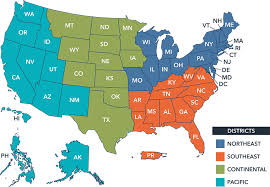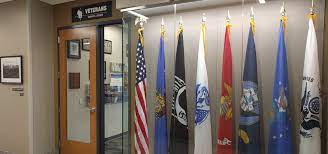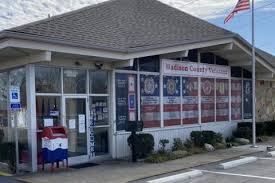As a veteran, it can be overwhelming to navigate the various benefits and resources available to you. That’s where the Veteran Service Office comes in. These offices are located across the country and provide a range of services to veterans and their families.
The primary purpose of the Veteran Service Office is to assist veterans in accessing their benefits. This includes helping with applications for disability compensation, education benefits, healthcare, and more. The staff at these offices are trained to help veterans understand the eligibility requirements for each benefit and guide them through the application process.
Another important service provided by these offices is counseling. Many veterans struggle with mental health issues such as PTSD or depression, and the Veteran Service Office can provide access to counseling services that can help them manage these conditions. They also offer support groups and other resources that can help veterans connect with others who have had similar experiences.
In addition to these services, many Veteran Service Offices also provide employment assistance. They can help veterans find job opportunities that are well-suited for their skills and experience, as well as provide training programs that can help them develop new skills.
If you’re looking for a Veteran Service Office near you, there are several ways to find one. You can start by searching online or contacting your local VA hospital or clinic. You can also contact your state’s Department of Veterans Affairs for more information.
Overall, the Veteran Service Office is an invaluable resource for veterans and their families. Whether you need assistance with accessing your benefits or just need someone to talk to about your experiences, these offices are here to help. So if you’re a veteran in need of assistance, don’t hesitate to reach out – there’s likely a Veteran Service Office near you ready and willing to help.
FAQs About Local Veteran Service Offices: Everything You Need to Know
- Where is the nearest veteran service office?
- How do I contact my local veteran service office?
- What services are offered at the veteran service office?
- What documents do I need to bring to the veteran service office?
- Are there any special programs available at the veteran service office?
- Is there a fee for using the services of a veteran service office?
- Is there an eligibility requirement for using a veteran service office?
- How can I find out more information about my local veterans’ services offices and programs?
Where is the nearest veteran service office?
The nearest veteran service office can be located by using the U.S. Department of Veterans Affairs website, which has a map and search tool to help you find the closest office to your location.
How do I contact my local veteran service office?
To contact your local Veteran Service Office, you can start by searching online for “Veteran Service Office near me” or “VA office near me”. This should provide you with a list of offices in your area. You can also visit the official website of the Department of Veterans Affairs (VA) and use their facility locator tool to find the nearest VA office.
Once you have located the nearest Veteran Service Office, you can call them directly using the phone number provided on their website or by VA’s facility locator tool. You can also visit the office in person during their business hours to speak with a representative.
It’s important to note that many Veteran Service Offices operate on an appointment-only basis, so it’s a good idea to call ahead and schedule an appointment before visiting. This will ensure that a representative is available to assist you when you arrive.
When contacting your local Veteran Service Office, be prepared to provide your name, branch and dates of service, and any relevant information about the benefits or services you are seeking. The staff at these offices are there to help, so don’t hesitate to ask questions or seek guidance if you need it.
In summary, contacting your local Veteran Service Office is easy – start by searching online for their location and contact information or use the VA’s facility locator tool. Once you have this information, call ahead to schedule an appointment before visiting in person. Remember to bring any relevant documents with you and be prepared to ask questions or seek guidance if needed.
What services are offered at the veteran service office?
The services offered at a Veteran Service Office (VSO) can vary depending on the specific office and its location. However, in general, VSOs offer a range of services to veterans and their families, including:
- Assistance with accessing benefits: One of the primary services provided by VSOs is help with accessing the benefits that veterans are entitled to. This includes helping veterans understand their eligibility for various benefits such as disability compensation, education benefits, healthcare, and more. VSO staff can also assist with completing the necessary applications and paperwork for these benefits.
- Counseling: Many VSOs offer counseling services to help veterans cope with mental health issues such as PTSD or depression. They may also offer support groups and other resources that can help veterans connect with others who have had similar experiences.
- Employment assistance: Some VSOs provide employment assistance to help veterans find job opportunities that are well-suited for their skills and experience. They may also provide training programs that can help them develop new skills.
- Housing assistance: Some VSOs provide housing assistance to homeless or at-risk veterans, including help finding affordable housing options and accessing rental assistance programs.
- Legal assistance: Some VSOs provide legal assistance to veterans who need help navigating legal issues related to their military service or accessing their benefits.
- Transportation: Some VSOs provide transportation services to help veterans get to medical appointments or other important events.
Overall, the goal of a Veteran Service Office is to support veterans in any way possible by providing them with access to a range of resources and services that can improve their quality of life after serving our country.
What documents do I need to bring to the veteran service office?
If you are planning to visit a Veteran Service Office (VSO), it’s important to bring certain documents with you to help the staff assist you more effectively. Here are some of the key documents that you should consider bringing:
- Military discharge papers (DD-214): This document provides proof of your military service, including dates of enlistment and discharge, as well as any medals or commendations earned during your service.
- Medical records: If you are seeking disability benefits, it’s helpful to bring any medical records related to your condition(s). This can include records from military hospitals or private doctors.
- Social Security number: Your Social Security number is required for most VA benefits applications.
- Marriage certificate and/or divorce decree: If you are married or divorced, these documents may be needed to apply for certain benefits such as survivor’s benefits or healthcare coverage for dependents.
- Birth certificate and/or adoption papers: These documents may be needed to prove your relationship with a dependent child or parent.
- Bank account information: If you are applying for certain benefits such as pension payments, you will need to provide bank account information for direct deposit.
- Tax returns: If you are applying for financial assistance, such as the VA’s Aid and Attendance benefit, you may need to provide tax returns or other financial documentation.
It’s important to note that the specific documents required may vary depending on the services and benefits that you are seeking. Before visiting a VSO, it’s a good idea to contact them in advance to ask about any specific requirements or documentation needed for your particular situation.
Are there any special programs available at the veteran service office?
Yes, there are several special programs available at the Veteran Service Office to help veterans and their families access the benefits and services they need. Some of these programs include:
- Vocational Rehabilitation and Employment (VR&E): This program helps veterans with service-connected disabilities prepare for, find, and keep suitable employment. VR&E also provides counseling and training to help veterans adjust to their disabilities.
- Homeless Veterans Program: This program provides a range of services to homeless veterans, including housing assistance, healthcare, job training, and counseling.
- Veterans Crisis Line: This is a 24/7 hotline that provides confidential support to veterans in crisis or distress. The hotline is staffed by trained professionals who can provide emotional support, crisis intervention, and referrals to local resources.
- VA Caregiver Support Program: This program provides support to caregivers of veterans who are seriously injured or ill as a result of their military service. Caregivers can receive training, counseling, respite care, and other services to help them provide the best possible care for their loved ones.
- Women Veterans Program: This program provides specialized care and support for women veterans, including healthcare services, counseling, employment assistance, and more.
These are just a few examples of the many programs available at the Veteran Service Office. Each office may offer different programs depending on the needs of the local veteran community. If you’re a veteran in need of assistance or have questions about what programs are available in your area, don’t hesitate to reach out to your local Veteran Service Office for more information.
Is there a fee for using the services of a veteran service office?
No, there is no fee for using the services of a Veteran Service Office. These offices are funded by the government and exist solely to assist veterans and their families in accessing their benefits and resources. All services provided by the Veteran Service Office are free of charge, including assistance with applications for disability compensation, education benefits, healthcare, counseling, employment assistance, and more.
It’s important to note that some organizations or individuals may claim to offer similar services for a fee. However, it’s always best to seek assistance from a reputable organization such as the Veteran Service Office or the Department of Veterans Affairs (VA) to ensure that you are receiving accurate information and guidance without any hidden costs or fees.
If you ever encounter any organization or individual claiming to offer similar services for a fee, it’s important to exercise caution and do your research before providing any personal information or payment. Remember that the Veteran Service Office is an official government agency that exists solely to serve veterans and their families – their services are always free of charge.
Is there an eligibility requirement for using a veteran service office?
Yes, there are eligibility requirements for using a Veteran Service Office. Generally, you must be a veteran or the spouse, dependent, or survivor of a veteran to receive services from these offices.
The specific eligibility criteria may vary depending on the type of benefit or service you are seeking. For example, to receive healthcare benefits from the VA, you must have served in active military service and received an honorable discharge. To be eligible for disability compensation, you must have a service-connected disability.
It’s important to note that even if you don’t meet the eligibility requirements for certain benefits or services, the staff at the Veteran Service Office can still provide guidance and assistance in finding other resources that may be available to you.
If you’re unsure about your eligibility for any particular benefit or service, it’s best to contact your local Veteran Service Office directly and speak with one of their trained professionals. They can help you understand what benefits and services may be available to you based on your individual circumstances.
How can I find out more information about my local veterans’ services offices and programs?
There are several ways to find out more information about your local veterans’ services offices and programs. Here are a few options:
- Visit the VA website: The U.S. Department of Veterans Affairs website is a great place to start your search for information about local veterans’ services offices and programs. You can use the VA’s facility locator tool to find the nearest VA medical center, community-based outpatient clinic, or Vet Center.
- Contact your state’s Department of Veterans Affairs: Each state has its own Department of Veterans Affairs that can provide information about local veterans’ services offices and programs. You can find contact information for your state’s department on the VA website.
- Contact a Veterans Service Organization (VSO): VSOs like the American Legion, Disabled American Veterans, and Veterans of Foreign Wars often have service officers who can help you navigate the VA system and connect you with local resources.
- Attend a town hall or other event: Many VA medical centers and Vet Centers hold town hall meetings and other events where you can learn more about local veterans’ services offices and programs.
- Ask your healthcare provider: If you receive care at a VA medical center or community-based outpatient clinic, ask your healthcare provider if they can provide information about local veterans’ services offices and programs.
Remember that there are many resources available to help you navigate the complex world of veterans’ benefits and services. Don’t hesitate to reach out for help if you need it!



